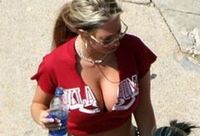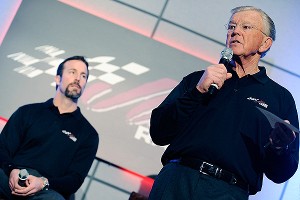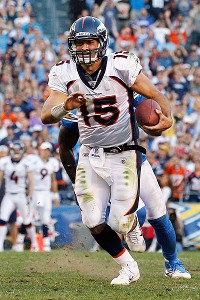After the season that was for Denver Broncos second-year quarterback Tim Tebow (you might have heard about him), it seems a good time to sit back, take a deep breath, and try to make sense of it all.
1. Tim Tebow was not as good as his most avid supporters said he was. In a league where 5,000 yards passing has become the new 4,000, Tebow passed for just 1,729 yards in 11 1/2 regular season games at a rate of 6.4 yards per attempt, tied for 26th in the league. In a key Denver win at Kansas City in November, Tebow completed exactly 2 passes. The following weekend against the Jets, the Denver coaching staff clearly was reluctant to let Tebow attempt passes even when the Broncos were trailing late in the fourth quarter. Even in his signature game, a dramatic 29-23 overtime playoff victory over the Steelers, Tebow completed just 10 passes (9 in regulation). In truth, Tebow had just two very good games: when he went 10 for 15 for 202 yards and two touchdowns in Minnesota, and the Pittsburgh game. This for a player whom some were mentioning in the MVP conversation. And even with his first-round playoff heroics, he had the worst completion rate (40.4 percent) of any quarterback this postseason.
2. At times, he was as bad as his detractors said he was. He was the only full-time starter to complete less than half of his passes in the regular season. This included his 18-for-39, 172-yard performance at home against Detroit, his 13-for-29, three-interception, 185-yard output in Buffalo, and his abysmal 6-for-22, 60-yard game versus Kansas City in the season finale when the Broncos thought they had a playoff berth riding on the game.
3. The "he just wins" argument fans quickly attached to Tebow during Denver's six-game winning streak was quickly disproved thereafter -- as it usually is. More often than not, the "he just wins" label is used to explain away the lack of passing proficiency of a signal caller who benefits from a strong surrounding cast. (Trent Dilfer has a Super Bowl ring from the 2000 Baltimore Ravens, which is one more than I have, but it doesn't make him a great quarterback.) Remember that many fans and commentators also pointed to Kyle Orton's winning record when he came to Denver in 2009, forgetting that most of his wins had come in his rookie season of 2005 with Chicago, when he was mediocre at best (5.1 yards per attempt and just 9 touchdowns to 18 turnovers) but benefited from a Bears defense that held the opposing team to single digits in eight games. Ironically, Denver started 2009 with a six-game winning streak built on some dramatic, last-second wins but then collapsed at season's end and missed out on the playoffs. Orton would lose his starting job to Tebow after five games in 2011 and was eventually waived by the team. Tebow built his own six-game streak on some dramatic, last-second wins in November and December; not to be lost in that streak are the four games in which the defense held the opposing team to 13 or fewer points.
4. Tebow is hardly the first NFL player to be outspoken about his Christian faith. Players have been thanking their Lord and Savior Jesus Christ for their touchdowns and sacks for years and years. And if NFL players had mocked the religion of, say, a Jewish or Muslim player the way Tebow was mocked by some Detroit Lions during a game in October, those players probably would have been fined if not suspended by the NFL and widely vilified by the media.
5. That said, if people find the teachings of the evangelical faith in which Tebow was raised to be objectionable, they have every right to say so in a society that values free speech. Just because a player (or anyone else) might profess certain beliefs under the label of "religion," it should not make those beliefs immune to scrutiny.
6. Forgetting the religion issue -- granted, this is almost impossible thanks to the incomparable attention surrounding the Broncos quarterback -- Tebow comes across as a good guy who welcomes being a role model. One might say this is refreshing in a league marred by such stories in recent years as players allegedly committing sexual assault, beating up a stripper, taking a loaded gun to a club, or participating in animal abuse. He also is, by most accounts, a good teammate who helped inject life into a lifeless team that had started the season losing four of its first five games. Broncos players talked about the sense of team camaraderie that grew as the season progressed. In one late-2011 contest, veteran Pro Bowler Champ Bailey was seen standing on the sidelines watching the offense almost like a fan watching from the stands, rather than resting between defensive series on the bench next to the oxygen tank. It seemed to sum up the vibe of the team's strange and wild ride to an improbable division title.
7. John Elway's recent statement that Tebow has earned the starting job going into next season's training camp was one of the biggest non-stories of the week. The Broncos have only one other quarterback (Adam Weber) under contract, anyway. And even if the Broncos were to draft a quarterback this spring, it would be highly unlikely for them to name an untested rookie QB as starter going into training camp. Let's also remember: Tebow went into last season slated as the starter before temporarily losing the role to Orton.
8. Tebow and the Broncos had a great ride but could very well take a step back next season. In the NFL scheduling formula, Denver as a defending AFC division champion will be matched against the other three defending division champions within conference in 2012. (After finishing last in their division in 2010, in 2011 they were pitted against two other AFC teams outside the division who'd likewise finished last, and just one defending first-place AFC team from outside their division.) Denver also cannot count on getting all the bounces next season. The team went 5-1 in close games with Tebow as starter. This includes three overtime wins in which Denver (1) recovered an onside kick as they overcame a late, 15-point deficit in Miami, (2) beat San Diego after blocking placekicker Nick Novack's 53-yard field goal in overtime, and (3) beat Chicago after the Bears' Marion Barber made a mental error that stopped the clock and eventually enabled Matt Prater's stunning 59-yard field to force overtime. If any one of those games had gone the other way, the Broncos would have finished with a losing record and missed out on the playoffs.
9. The Broncos need to get rid of the option. While it's an asset to have a quarterback who can run -- and run Tebow did, gaining 660 yards on the ground last year -- there's a reason why other NFL teams don't put the option in their offensive playbooks. It won't work consistently against elite NFL defenses, and by the end of the season, teams had scouted Tebow and taken it away from the Broncos' arsenal.
10. To be a consistent success in the NFL, Tebow will need to demonstrate proficiency in passing when the other team is looking for Denver to pass the ball. You can't always expect your defense to keep the game close so you can win it miraculously in the end. You can't base your entire passing attack on play-action passes and the element of surprise. You need to pick apart defenses when your team is trailing and the other team knows you need to drop back and throw a few.
It was a memorable roller coaster ride for the Broncos and their quarterback this season. Heading into next season -- when Tebow will benefit from having his first full training camp as a starter -- we know this: Broncos fans can neither count on him to be the quarterback of the future, nor can they count him out.
Follow Rob Kirkpatrick on Twitter: www.twitter.com/wrappedupinboox









